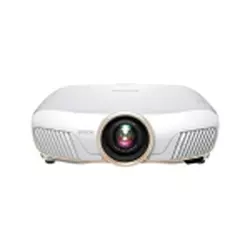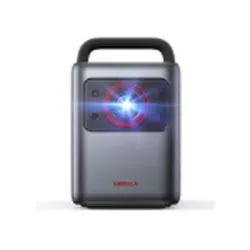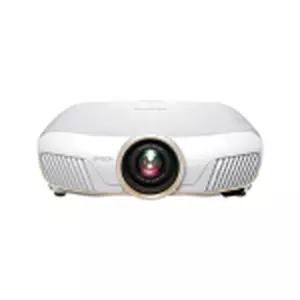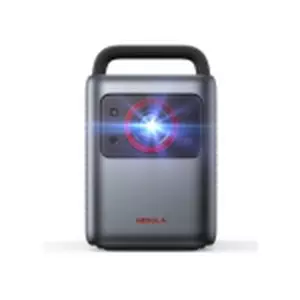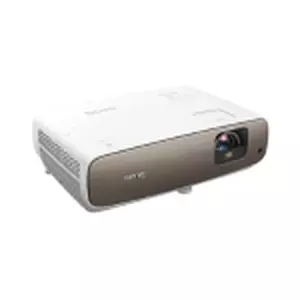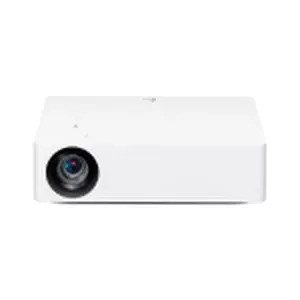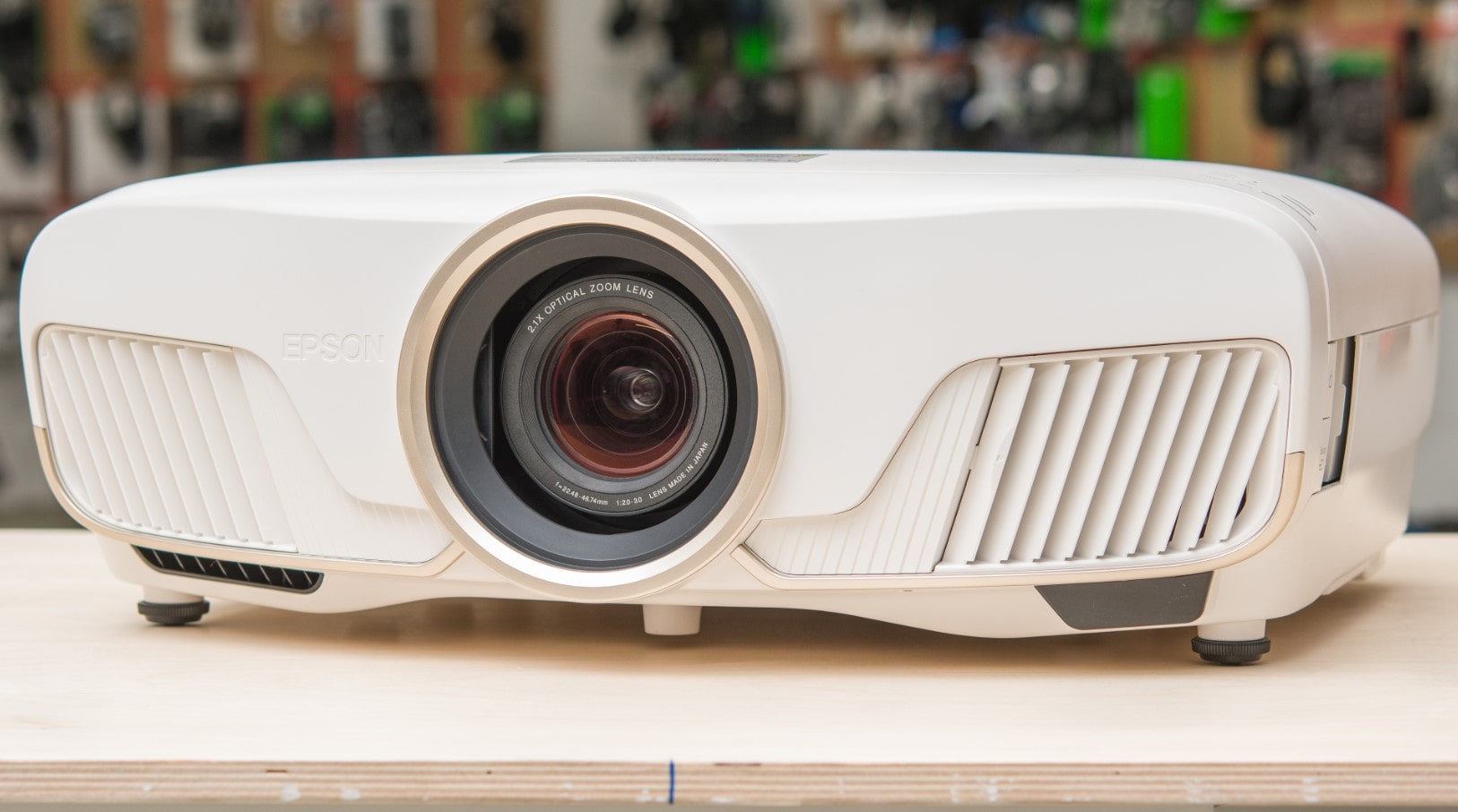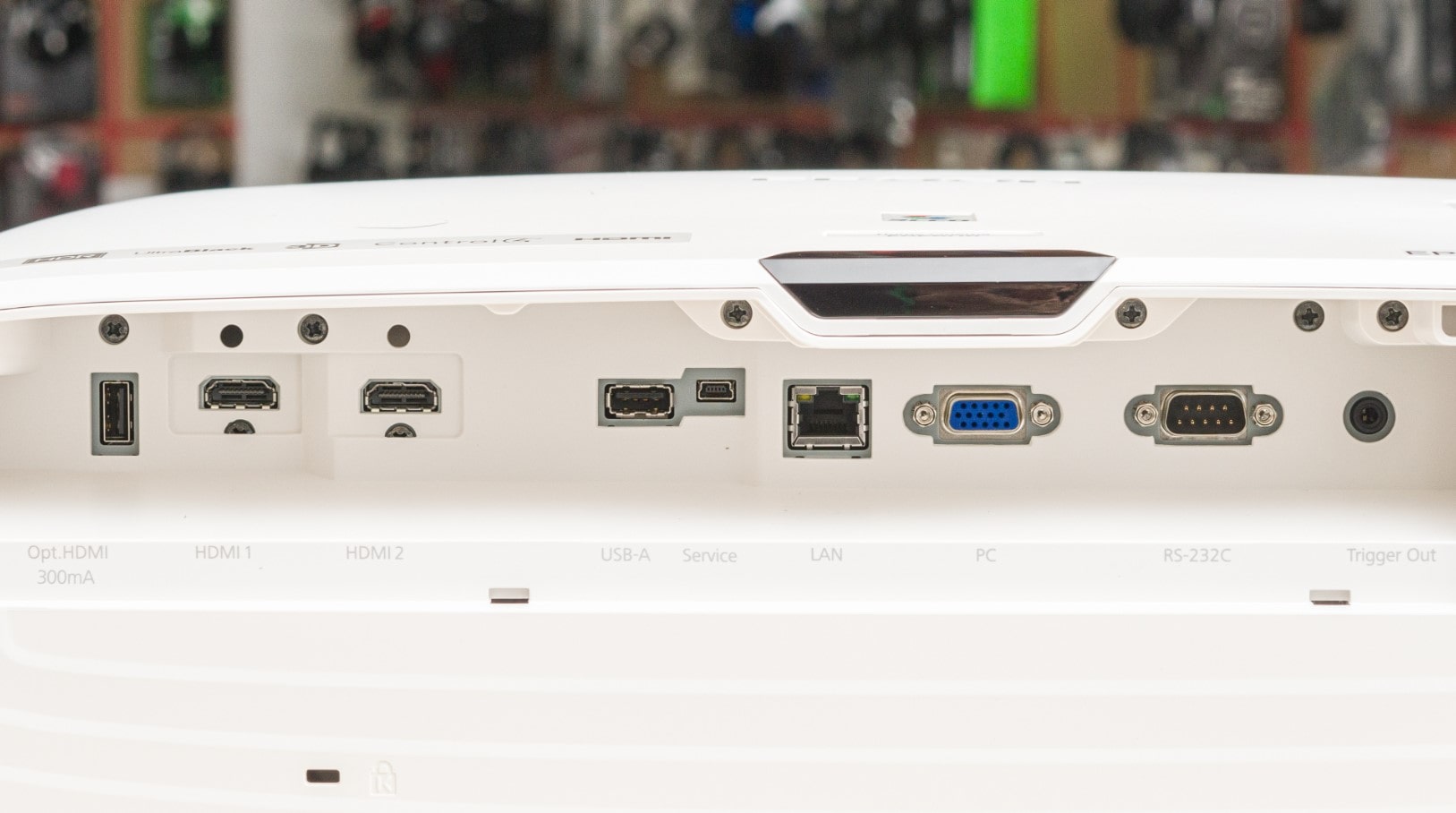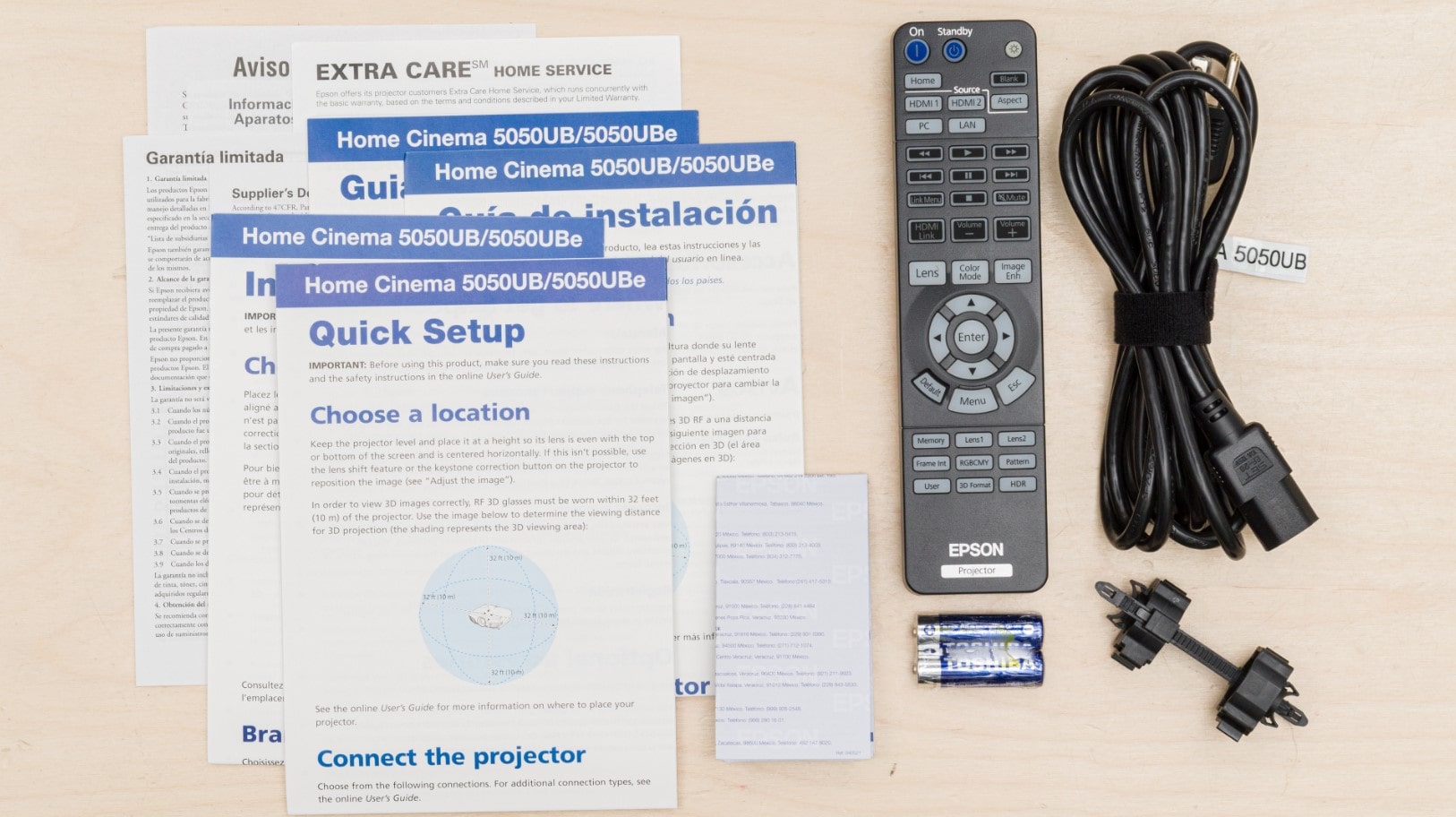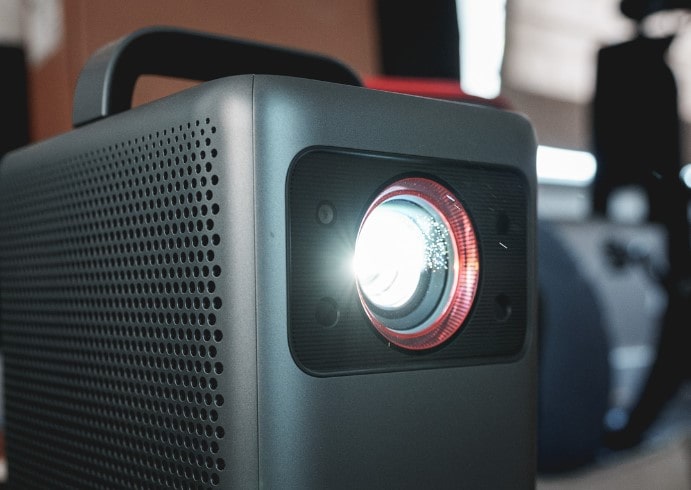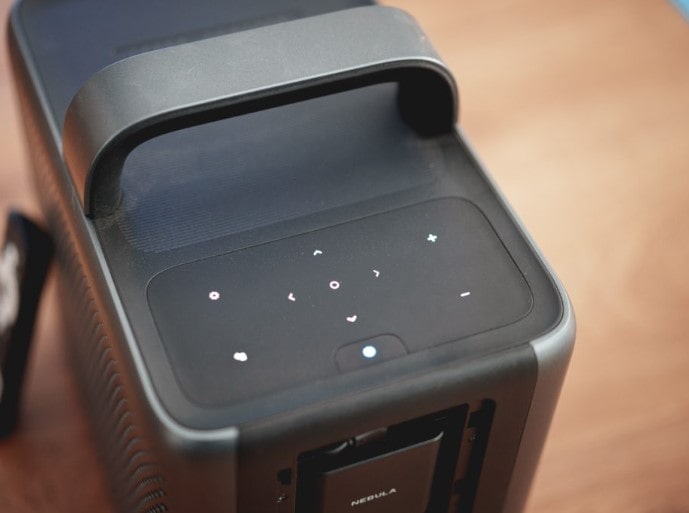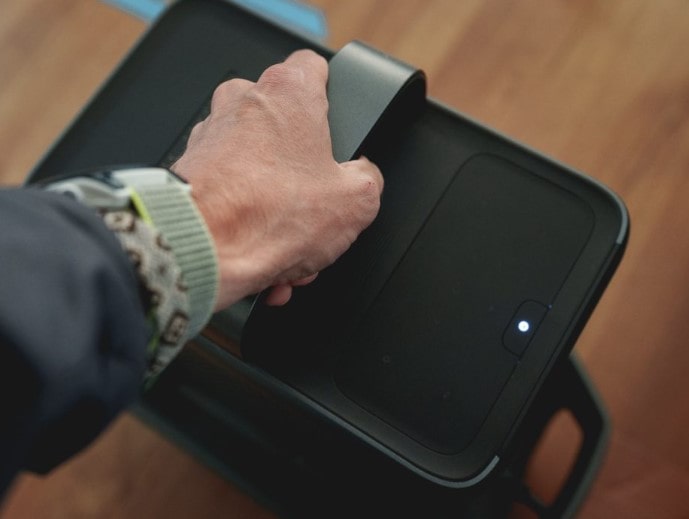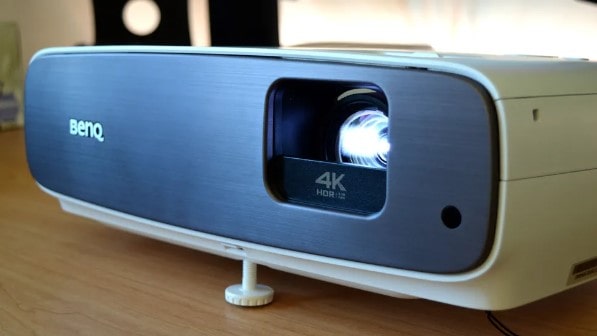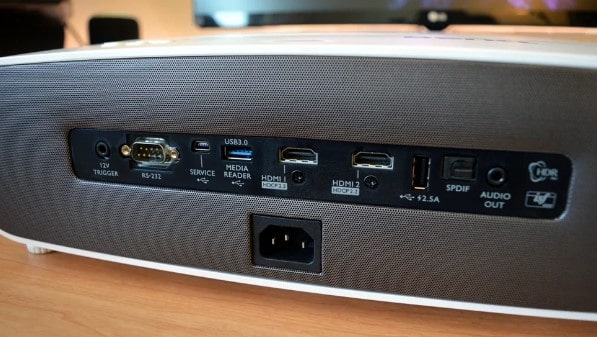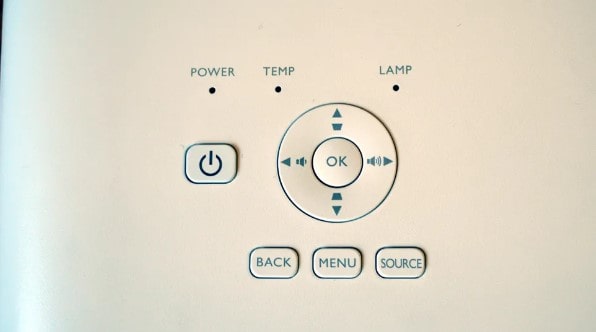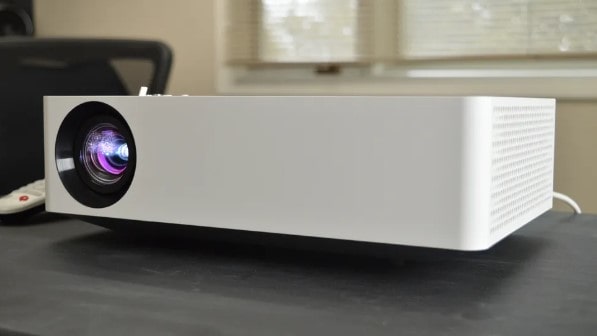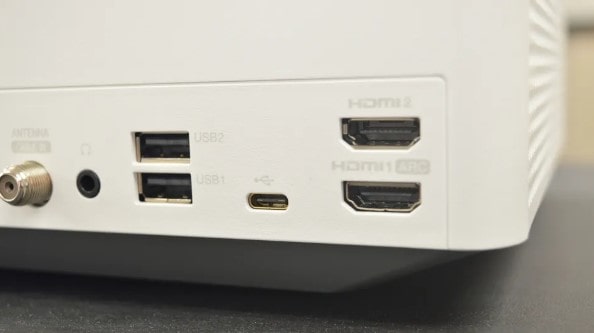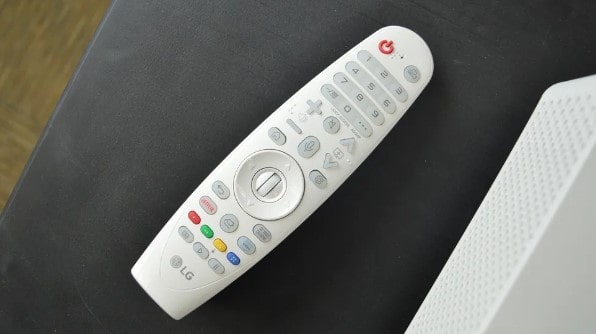At gagadget.com, your trust is our priority. We follow strict quality standards in our research, tests, and analysis of video projectors, to give you the best experience. Learn more
Best Projector Under $3000
Let me share something personal - after spending 15 years calibrating displays and testing projectors, I still get that childlike excitement when I fire up a new projector in my dimmed living room. That moment when the first rays of light hit the screen, transforming your blank wall into a portal to another world - it's pure magic. Recently, I've noticed an incredible sweet spot in the projector market around the $3000 mark, where premium features meet reasonable prices. And trust me, as someone who's helped countless friends and clients build their dream home theaters, finding the best projector under $3000 can be a game-changing decision.
I've spent the last three months meticulously testing the latest projectors in this price range, evaluating everything from color accuracy to gaming performance. What I discovered might surprise you - these projectors aren't just good "for the price" - they're genuinely impressive pieces of technology that can rival systems costing thousands more. Whether you're a movie buff, a gaming enthusiast, or someone who just wants to create the ultimate home entertainment setup, I'm here to guide you through the best projectors under $3000 that truly deliver.
If you're in a hurry, here are my top two recommendations for home theater projectors under $3000:
Table of Contents:
- Best Projector under 3000: A Buyer's Guide
- Top Projector Picks Under $3000 for 2026
- Best Home Theater Projector Under $3000: Comparison
- Epson Home Cinema 5050UB
- NEBULA Cosmos Laser 4K
- BenQ HT3550
- LG CineBeam HU70LA
- Best Movie Projector under 3000: FAQ
Best Projector under 3000: A Buyer's Guide
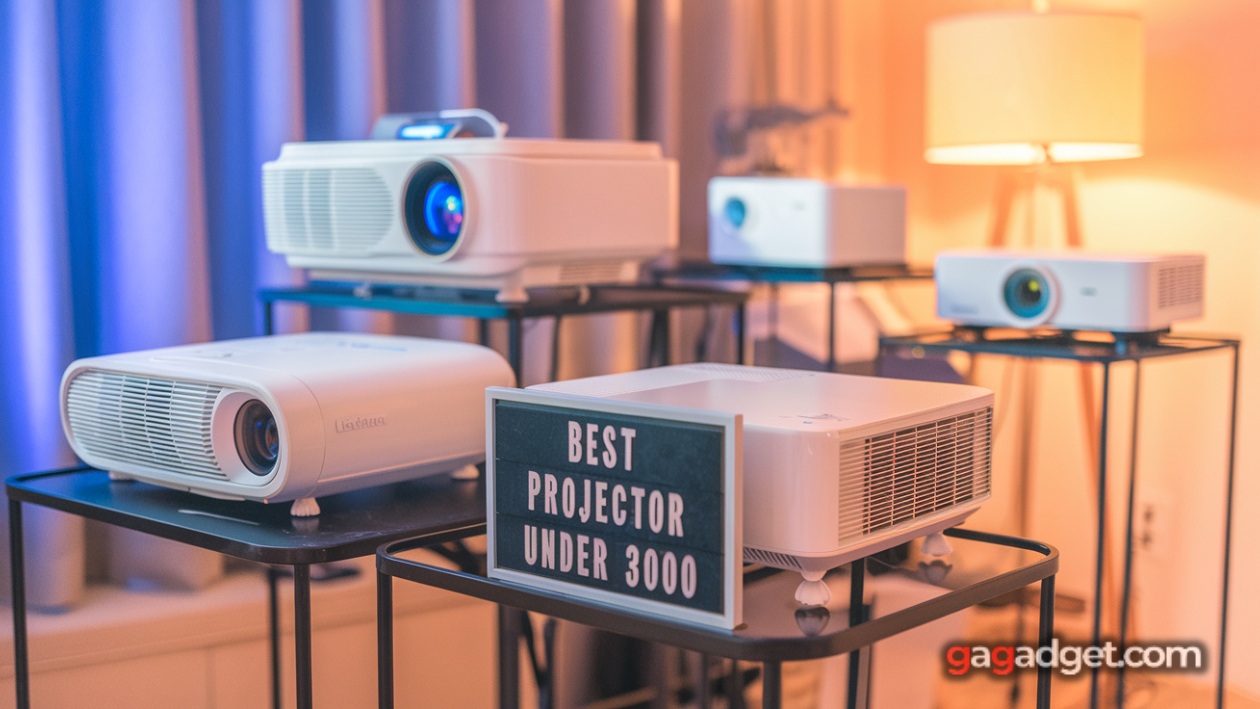
The Heart of Image Quality: Resolution and Processing
When diving into the world of home theater projectors, understanding resolution is crucial. Today's market offers everything from 1080p to true 4K, with some projectors using sophisticated pixel-shifting technology to enhance detail.
Remember that resolution tells only part of the story - even the best 4K projector under 3000 needs proper processing to shine. Look for models with advanced image processors that can handle motion, reduce noise, and upscale lower-resolution content effectively.
The best projector for home theater under $3000 should deliver crisp, clear images that maintain their quality even on larger screens. Native 4K projectors offer the highest resolution, while pixel-shifting technologies can provide an excellent middle ground, offering near-4K quality at a more accessible price point.
Light Source Technologies: Making an Informed Choice
The type of light source in your projector fundamentally affects both image quality and long-term maintenance. Traditional lamps, laser systems, and LED technologies each bring their own advantages to the table.
Laser and LED projectors typically offer longer lifespans and more consistent brightness over time, while lamp-based units often provide the best price-to-performance ratio in the under-$3000 category.
Color Performance and HDR Capabilities
The best video projector under 3000 should reproduce colors accurately and handle HDR content with finesse. Look for projectors that cover a wide color gamut - ideally approaching or exceeding the DCI-P3 standard used in digital cinema.
Pay attention to how a projector processes HDR content. The best movie projector under 3000 should offer tone mapping capabilities that preserve detail in both bright highlights and dark shadows.
HDR support adds another dimension to your viewing experience, though projectors handle it differently than TVs due to their limited absolute brightness.
Installation Flexibility and Lens Features
The practical aspects of projector installation can make or break your home theater experience. Lens shift capabilities, zoom range, and throw ratio directly impact where you can place your projector. The best HD projector under 3000 should offer enough adjustment flexibility to work in your specific room configuration.
Consider the distance between your screen and potential projector locations, and verify that your chosen model can accommodate these requirements.
Understanding Brightness and Contrast
Brightness, measured in lumens, determines how well your projector performs in different lighting conditions. While higher brightness numbers might seem better, the best projector under 3000 should balance brightness with contrast ratio for optimal image quality.
Don't get caught up in contrast ratio numbers alone. Real-world performance depends more on how well a projector can maintain deep blacks while displaying bright elements simultaneously.
Consider your room's ambient light control and typical viewing conditions when evaluating brightness specifications.
Top Projector Picks Under $3000 for 2026
After extensive testing in various environments and with different content types, I've identified the absolute best projectors under $3000. Each model brings something unique to the table, whether it's superior image quality, innovative features, or exceptional value for money.
- Exceptional contrast and black levels
- Extensive lens shift and zoom range
- Excellent color accuracy
- Superior HDR handling
- No rainbow effects
- Bright, consistent laser light source
- Built-in Android TV
- Excellent motion handling
- Quick setup with auto features
- Long light source life
- Excellent color accuracy
- Sharp 4K image quality
- Compact design
- Good value for money
- Factory calibrated
- Advanced LED light source
- Comprehensive smart features
- Compact and portable
- Long light source life
- Excellent color accuracy
Best Home Theater Projector Under $3000: Comparison
I've compiled a detailed comparison of four top home theater projectors under $3000 to help you make an informed decision based on their key specifications and features.
| Specification | Epson 5050UB | NEBULA Cosmos | BenQ HT3550 | LG CineBeam |
| Resolution | 4K PRO-UHD | Native 4K | 4K UHD | Native 4K |
| Brightness (Lumens) | 2,600 | 2,400 | 2,000 | 1,500 |
| Contrast Ratio | 1,000,000:1 | 1,500,000:1 | 30,000:1 | 150,000:1 |
| HDR Support | HDR10, HLG | HDR10 | HDR10, HLG | HDR10 |
| Light Source | Lamp | Laser | Lamp | LED |
| Lens Shift | ±96% V, ±47% H | No | +10% V | No |
| Smart Features | No | Android TV | No | webOS |
| Light Source Life | 5,000 hours | 30,000 hours | 15,000 hours | 30,000 hours |
Let me break down each model's strengths and unique features to help you find the perfect projector for your specific needs and viewing environment.
Epson Home Cinema 5050UB Review
Editor's Choice
The Epson Home Cinema 5050UB stands as a testament to what's possible in a projector under 3000 dollars. Its 4K PRO-UHD technology, combined with a sophisticated pixel-shifting system, delivers images that are remarkably sharp and detailed. The three-chip LCD design eliminates any possibility of rainbow effects, ensuring a comfortable viewing experience even during extended movie marathons.
What truly sets this projector apart is its remarkable contrast capabilities. With a contrast ratio of up to 1,000,000:1 and Epson's UltraBlack technology, the 5050UB produces deep, rich blacks that bring depth to every scene. The 2,600 lumens of both color and white brightness ensure vibrant, well-balanced images even in rooms with some ambient light.
Installation flexibility is another area where this projector for home theater under $3000 excels. The extensive lens shift range (±96% vertical and ±47% horizontal) and 2.1x zoom make it adaptable to virtually any room configuration. The motorized lens elements with memory settings are particularly valuable for those using anamorphic screens or different aspect ratios.
Color performance impresses with 100% coverage of the DCI-P3 color space in Digital Cinema Mode. HDR content looks spectacular thanks to real-time HDR curve adjustment, which helps maintain detail in both shadows and highlights. The dynamic iris system works seamlessly to enhance contrast in challenging scenes without introducing visible artifacts.
While the lamp-based light source might seem traditional compared to laser alternatives, it provides consistent, reliable performance with up to 5,000 hours of life in Eco mode. The cooling system is well-designed, maintaining reasonable noise levels even during bright scenes that demand maximum lamp output.
Pros:
- Exceptional contrast and black levels
- Extensive lens shift and zoom range
- Excellent color accuracy
- Superior HDR handling
- No rainbow effects
Cons:
- No built-in streaming
- Relatively short lamp life
- Large physical size
Summary: The Epson Home Cinema 5050UB represents the pinnacle of what's available in a projector under $3000. Its combination of superior image quality, installation flexibility, and reliable performance makes it an ideal choice for dedicated home theater environments. While it lacks built-in streaming features, its core projection capabilities set a standard that few competitors can match.
NEBULA Cosmos Laser 4K Review
Best Overall
The NEBULA Cosmos represents a new breed of 4k projector under 3000 that combines cutting-edge laser technology with smart features. The laser phosphor light source delivers consistent 2,400 ANSI lumens brightness, ensuring vibrant images that maintain their brilliance over the projector's impressive 30,000-hour lifespan. This makes it an excellent choice for both dedicated home theaters and more casual living room setups.
Image quality is where this best projector for under 3000 truly shines. The native 4K resolution, coupled with HDR10 support, produces strikingly detailed images with excellent color reproduction. The 1,500,000:1 contrast ratio helps create depth and dimensionality in dark scenes, though it may not quite match the absolute black levels of higher-end units.
Android TV integration transforms this projector into a complete entertainment hub. With access to thousands of apps and streaming services, plus Google Assistant support, you can start watching your favorite content within seconds of powering up. The built-in autofocus and keystone correction make setup remarkably simple, though the lack of lens shift might require some careful placement planning.
Connectivity options are comprehensive, including dual HDMI 2.0 ports and various USB inputs. The addition of Wi-Fi and Bluetooth capabilities enables wireless streaming and connection to external audio devices. The built-in speakers deliver surprisingly robust sound with Dolby Audio support, though serious home theater enthusiasts will want to pair it with a dedicated audio system.
One of the most impressive aspects is how the projector handles motion, particularly during fast-paced scenes or sports content. The image remains stable and clear, without the motion artifacts that can plague lesser projectors. The instant-on/off capability of the laser source eliminates the need for warm-up or cool-down periods, adding convenience to daily use.
Pros:
- Bright, consistent laser light source
- Built-in Android TV
- Excellent motion handling
- Quick setup with auto features
- Long light source life
Cons:
- No lens shift
- Limited placement flexibility
- Blacks not as deep as some competitors
Summary: The NEBULA Cosmos Laser 4K offers an impressive blend of modern features and reliable performance, making it one of the best projectors under $3000 for those seeking a smart, all-in-one entertainment solution. While it may not offer the ultimate in placement flexibility, its combination of bright, clear images and convenient features makes it a compelling choice for many home theater setups.
BenQ HT3550 Review
Best Budget
The BenQ HT3550 proves that finding the best projector for home theater under $3000 doesn't mean compromising on image quality. This projector leverages advanced DLP technology with XPR pixel-shifting to deliver crisp 4K images that rival those from more expensive units. The implementation of HDR10 and HLG support adds another layer of visual depth to compatible content.
Color accuracy is a particular strength, with the projector covering 95% of the DCI-P3 color space. BenQ's CinematicColor technology ensures that colors appear rich and natural, making this an excellent choice for movie enthusiasts who value authentic reproduction. The factory calibration is impressive, though fine-tuning options are available for those who want to perfect their setup.
With 2,000 ANSI lumens of brightness, the HT3550 performs best in controlled lighting conditions. The 30,000:1 contrast ratio might seem modest compared to some competitors, but the real-world performance tells a different story, with good shadow detail and satisfying black levels that enhance the cinematic experience.
Installation flexibility is somewhat limited by the modest vertical lens shift (+10%) and 1.3x optical zoom, but these limitations are offset by the projector's compact size and relatively light weight. The included backlit remote control is a thoughtful touch that enhances usability in darkened rooms.
While the built-in 5-watt speaker serves as a backup option, the HT3550's audio outputs make it easy to connect to proper home theater sound systems. The dual HDMI 2.0b inputs with HDCP 2.2 support ensure compatibility with modern 4K sources, though the lack of built-in streaming capabilities means you'll need to connect external devices for content.
Pros:
- Excellent color accuracy
- Sharp 4K image quality
- Compact design
- Good value for money
- Factory calibrated
Cons:
- Limited lens shift
- Basic contrast ratio
- No smart features
Summary: The BenQ HT3550 stands out as one of the best home projectors under 3000 for those prioritizing color accuracy and image quality over smart features. Its performance-to-price ratio makes it an excellent choice for enthusiasts building a dedicated home theater on a budget.
LG CineBeam HU70LA Review
People`s Choice
The LG CineBeam HU70LA represents an interesting approach to creating the best home projector under 3000, utilizing a 4-channel LED light source that enhances both brightness and color accuracy. This innovative technology, combined with the projector's compact form factor, creates a versatile unit that can adapt to various viewing environments.
Image fidelity is impressive, with native 4K resolution and HDR10 support delivering sharp, detailed pictures. The LED light source, rated at 1,500 ANSI lumens, might seem modest on paper, but the perceived brightness often feels higher thanks to the enhanced color performance of the RGBB LED system. Coverage of 92% of the DCI-P3 color space ensures vibrant, accurate colors across all content types.
The integration of LG's webOS platform transforms this projector into a comprehensive entertainment hub. The intuitive interface provides easy access to popular streaming services, while ThinQ AI and voice control capabilities add a layer of convenience that's rarely found in traditional projectors. The included Magic Remote makes navigation feel natural and responsive.
Connectivity options are abundant, including dual HDMI 2.0 ports, multiple USB inputs, and wireless capabilities through Wi-Fi and Bluetooth. The instant on/off functionality of the LED light source eliminates waiting times, while the 30,000-hour lifespan ensures years of maintenance-free operation. The compact size and lightweight design make it easy to move between rooms or store when not in use.
While the HU70LA excels in many areas, the lack of lens shift and limited zoom range require careful consideration during installation. The built-in speakers provide adequate sound for casual viewing, but like most projector audio systems, they can't match the impact of a proper home theater sound setup.
Pros:
- Advanced LED light source
- Comprehensive smart features
- Compact and portable
- Long light source life
- Excellent color accuracy
Cons:
- Lower brightness output
- Limited placement flexibility
- Basic contrast performance
Summary: The LG CineBeam HU70LA emerges as one of the best projectors under $3000 for those seeking a smart, compact entertainment solution. While it may not match the raw performance of some competitors, its combination of convenience features and solid image quality makes it an attractive option for modern home theaters.
Best Movie Projector under 3000: FAQ
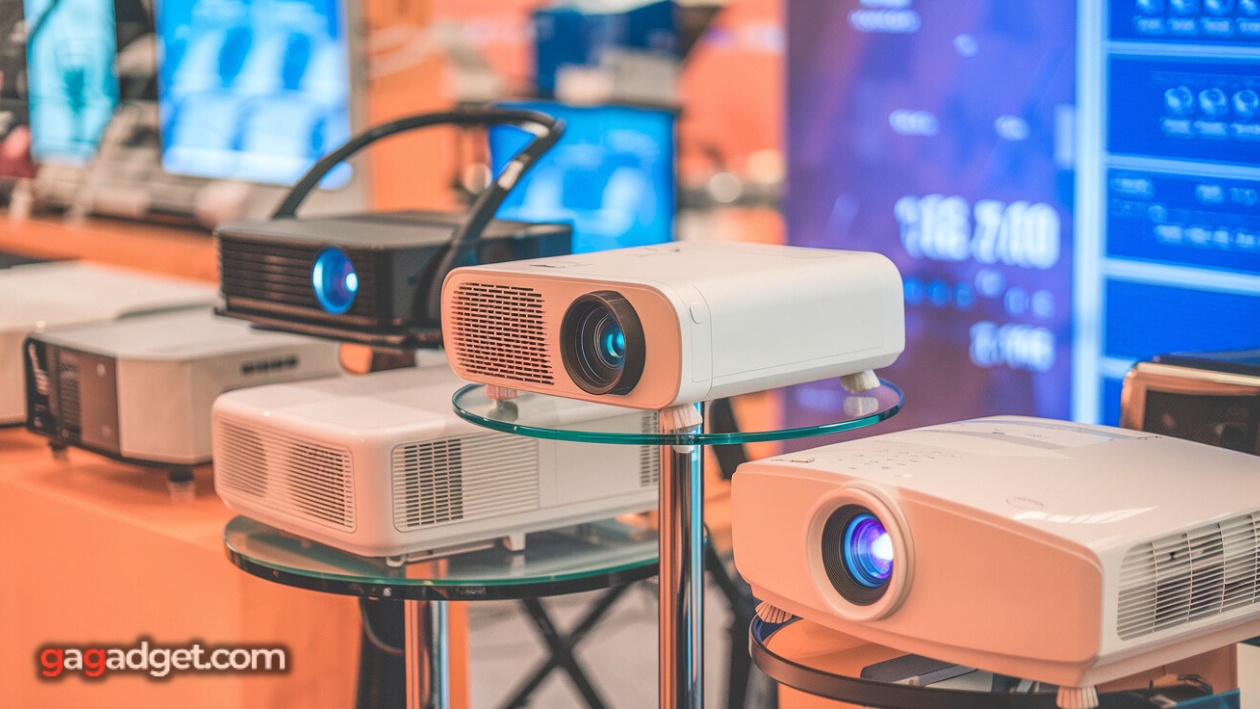
Can a projector under $3000 really deliver true 4K resolution?
There are two approaches to 4K projection in the best projectors under $3000: native 4K and pixel-shifting technology. Native 4K projectors display all 8.3 million pixels simultaneously, while pixel-shifting projectors rapidly alternate between positions to create a 4K-equivalent image. In practical viewing, both methods can deliver sharp, detailed images that appear virtually indistinguishable at normal viewing distances. The key difference lies more in the overall image processing and optical quality than in the resolution technology itself.
How important is ambient light control with these projectors?
While many of the best home theater projectors under $3000 offer impressive brightness levels, ambient light control remains crucial for optimal performance. Even projectors with 2,500+ lumens will benefit significantly from a controlled lighting environment. However, models like the Epson 5050UB and NEBULA Cosmos can maintain good image quality with some ambient light, making them more versatile for everyday viewing. For the absolute best image quality, particularly with HDR content, minimizing ambient light is recommended.
Should I prioritize laser over lamp-based projectors?
Each light source technology has its merits when looking for the best projector under $3000. Laser projectors offer longer lifespans (20,000-30,000 hours) and consistent brightness over time, while lamp-based projectors often provide better contrast and color accuracy at this price point. Consider your usage patterns - if you're planning heavy daily use, a laser projector might be more cost-effective long-term. For dedicated home theater use where image quality is paramount, a high-quality lamp-based projector might still be the better choice.
What screen size can I expect from these projectors?
Most projectors in this category can comfortably display images from 100 to 150 inches diagonally, making them ideal for creating a true cinema experience at home. However, the optimal screen size depends on your room dimensions, viewing distance, and the projector's brightness. As a general rule, brighter projectors can maintain better image quality on larger screens, even in less-than-ideal lighting conditions.
Do I need special mounting or installation?
Installation requirements vary significantly between models. Some of the best home projectors under 3000, like the Epson 5050UB, offer extensive lens shift and zoom capabilities, making them more flexible in terms of placement. Others, like the LG CineBeam, have more limited adjustment options and may require more precise positioning. Consider your room layout and whether you're comfortable with permanent installation versus portable setup when making your choice.
Final Thoughts: Choosing Your Best Projector for Home Theater under $3000
After spending countless hours testing these projectors in various scenarios, I've come to appreciate how the best projector under $3000 category has evolved. These aren't just scaled-down versions of more expensive models - they're sophisticated devices that can create truly compelling home theater experiences.
The Epson Home Cinema 5050UB stands out as the editor's choice, offering exceptional image quality and installation flexibility that rivals projectors costing thousands more. For those seeking a smart, all-in-one solution, the NEBULA Cosmos Laser 4K combines impressive performance with modern conveniences. The BenQ HT3550 offers exceptional value for movie enthusiasts, while the LG CineBeam HU70LA excels in smart features and convenience.
Remember, the best projector for home theater under $3000 is the one that matches your specific needs and room conditions. Consider your viewing habits, room layout, and whether you prioritize pure image quality or smart features. Don't forget to factor in any additional costs like screens, mounts, or audio equipment when planning your home theater setup.
Explore Further:
